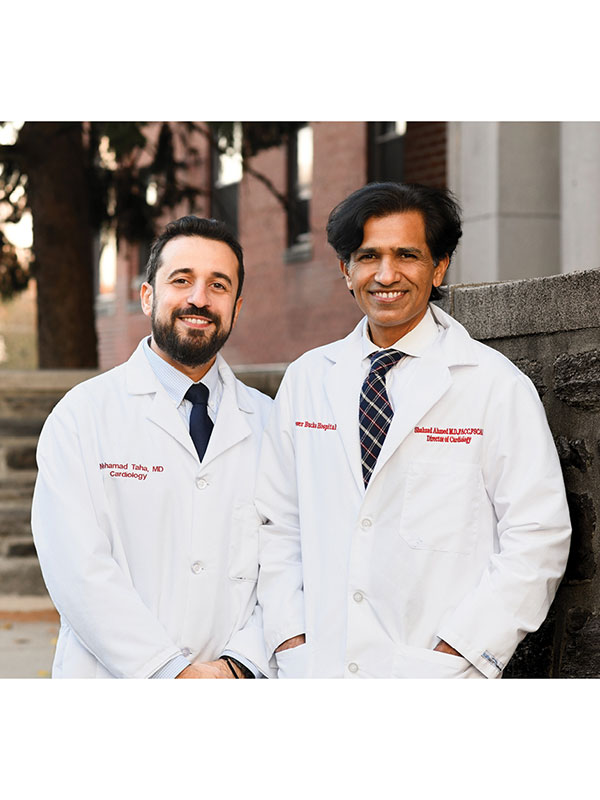Heart Health Champions
The region’s top heart experts share their insight on the latest advances in heart care and the best ways to live a heart-healthy lifestyle.

Brought to you by Prime Healthcare
Heart Health Matters
Drs. Shahzad Ahmed and Mohamad Taha, cardiologists from Prime Healthcare, discuss the exciting advances in cardiac care and why all women need to pay attention to their heart health.
How has cardiac care advanced in recent years? Dr. Shahzad Ahmed: The last few years have been exciting for cardiovascular care. We have a lot of new options and strategies for care and to prevent coronary artery disease that were not available years ago. For example, to manage cholesterol we now have injectable drugs, PCSK9 inhibitors, which we can use to treat cholesterol in someone who is not able to tolerate pills like statins due to muscle aches or other adverse reactions. We also have new tools and technology to treat heart valve disease through less invasive options, such as percutaneous valve replacement, which is done through a catheter that is guided through a blood vessel into the heart.
How have clinical trials and research advanced treatment options? Dr. Mohamad Taha: One of the most exciting aspects of the field of cardiology is the large number of clinical trials and published research, making the field very dynamic and offering an ever-increasing number of ways to diagnose cardiac disease as well as options to treat it. Examples include the addition of what was traditionally diabetic treatment medications, such dapagliflozin and empagliflozin, to now treat heart failure. Another example would be the devices we are able to insert into the heart through an artery to help its function if it becomes weak, which became very common during COVID-19.
Why is preventative care so important for women at risk of heart disease? SA: It is very important to manage the risks to prevent heart disease. For example, if you have high blood pressure, make sure it is well controlled. Take care of your diabetes and high cholesterol. Follow up with your doctor on a regular basis to check cholesterol, diabetes and other preventive measures. A diet low in fat and high in fruits and vegetables is important, and red meat should be avoided. The American Heart Association advises at least 150 minutes of moderate physical activity a week, which is at least 30 minutes per day for at least five days.
What are risk factors of heart disease? What are some lesser-known risk factors? MT: The common risk factors include elevated blood pressure, diabetes, elevated cholesterol and smoking. However, recent studies have also determined that life stressors are one of the most common causes as well.
At what age should women start to think about their cardiac health? MT: We see numerous cardiac conditions with different age groups. Symptoms such as chest pain, palpitations or heart fluttering, shortness of breath, dizziness or lightheadedness and “passing out” should never be taken lightly and should always trigger an evaluation by a physician.
